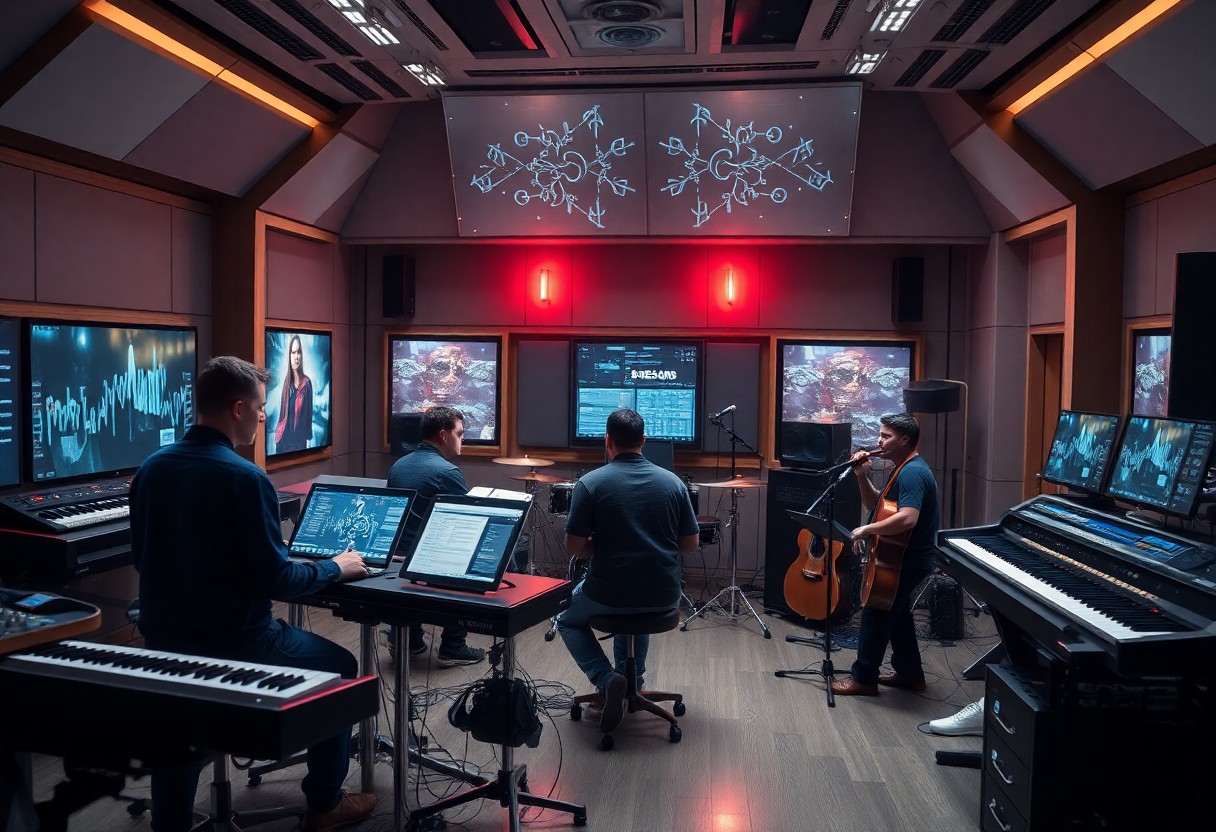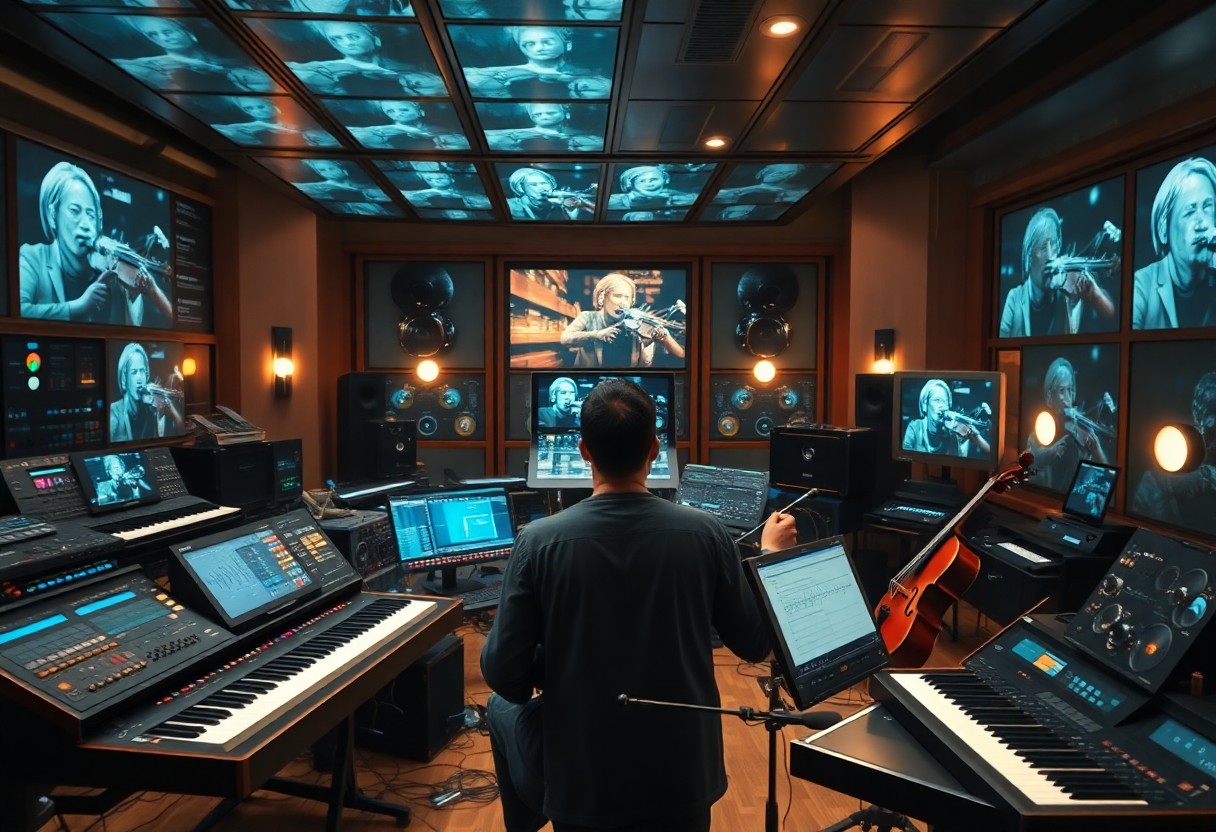Most aspiring musicians and producers are looking for innovative ways to enhance their skills and creativity, and the Master of Electronic Composition (M.E.C.) program offers a comprehensive pathway to achieve this. In this blog post, you will explore the key components of the M.E.C. program, its curriculum, and how it can elevate your electronic music production capabilities. As you explore into the world of electronic composition, you’ll discover the opportunities it presents for career advancement and personal artistic growth.
Key Takeaways:
- M.E.C. focuses on the development of advanced skills in electronic music production, sound design, and composition techniques.
- The program emphasizes hands-on experience with various software and hardware tools, equipping students with practical knowledge to create contemporary electronic music.
- Networking opportunities with industry professionals and collaborative projects are integral, helping students establish connections in the electronic music scene.
The Transformation of Composition in the Digital Age
The evolution of music composition has taken dramatic strides in the digital age, enabling unprecedented creativity and access. Digital tools and platforms facilitate collaboration that transcends geographic barriers, allowing you to work with musicians worldwide through file sharing and virtual sessions. Furthermore, the proliferation of online resources provides educational opportunities, empowering you to learn from established artists and experiment with new styles and techniques in real-time. This shift not only democratizes music creation but also fosters a diverse soundscape that reflects contemporary cultural experiences.
Innovations in Music Technology
Today’s composers benefit from innovations that radically alter how music is created. With advancements in software like Ableton Live, Logic Pro, and Pro Tools, you have the capability to manipulate sound in ways previously unimaginable. From MIDI input that captures your every note to intricate sound libraries that expand your sonic palette, technology seamlessly integrates into the creative process. These tools allow you to produce polished, professional-quality tracks from the comfort of your home studio.
The Impact of Software on Traditional Composition
As software has become integral to music composition, it challenges and redefines traditional methods. You might find that familiar processes, such as arranging and orchestrating, now incorporate digital elements that streamline workflow and enhance creativity. For instance, notation software like Sibelius and Finale has transformed how you visualize music, allowing for quick edits and instant playback. This accessibility saves time while inspiring experimentation, enabling you to focus on artistic vision. Nevertheless, the reliance on technology can also blur the lines between traditional musicianship and digital manipulation, compelling you to adapt and evolve your approach to music creation.

Crafting Soundscapes: Techniques of Electronic Composition
Crafting immersive soundscapes in electronic music requires a set of techniques that blend creativity with technology. You’ll examine into how to manipulate sounds to create rich auditory experiences that capture your audience’s attention. By exploring layering, texturing, sampling, and sound manipulation, you can elevate your compositions and provide a unique sonic signature that resonates with listeners.
Layering and Texturing Sounds
Layering involves stacking multiple audio tracks to create a fuller, more complex sound. By combining different instruments, vocal samples, and synth patches, you can establish depth and richness in your music. Texturing further enhances this by incorporating ambient sounds or effects, offering a sense of place and emotion that draws your audience deeper into the experience.
Utilizing Sampling and Sound Manipulation
Sampling and sound manipulation open up a vast array of creative possibilities. By capturing audio snippets from various sources, you can transform everyday sounds into unique musical elements. This technique enables you to create intricate layers of sound that may include environmental noises, dialogue, or musical phrases that you can then reshape using effects and editing tools.
Sampling allows you to ground your work in reality while still pushing the boundaries of genre and expectation. For instance, renowned artists like Flying Lotus and Burial draw upon samples from diverse musical backgrounds, transforming them into distinctive elements that defy categorization. As you experiment with sound manipulation techniques—such as time-stretching, pitch-shifting, or granular synthesis—you find ways to stretch and reshape these samples, allowing you to craft completely new textures and tonal colors. Embracing these methods not only enriches your compositions but also challenges traditional music boundaries, inviting experimentation and innovation at every turn.
The Role of Collaboration in Modern Electronic Music
Collaboration is a cornerstone of contemporary electronic music, allowing artists to merge diverse influences and create innovative soundscapes. Engaging in joint projects not only expands your creative horizons but also fosters a supportive environment where sharing knowledge is encouraged. You can explore partnerships with fellow musicians, producers, and even visual artists to enhance your composition skills. For those passionate about honing their craft, programs like the Master of Music Electronic Composition Program provide structured frameworks for collaboration within creative communities.
Cross-disciplinary Partnerships
Working across disciplines opens new avenues for creativity in electronic music. Collaborating with artists from fields such as visual arts, technology, or performance can yield unexpected and exciting results. Such partnerships allow you to experiment with multimedia exhibitions or interactive installations, enriching your compositions while broadening your skill set. Being part of varied projects can inspire fresh ideas and elevate your artistic voice.
Online Communities and Collective Creativity
Digital platforms have revolutionized how you connect with fellow musicians, allowing for collaboration regardless of geographic boundaries. Online communities are thriving with artists sharing their work, providing feedback, and initiateing on joint projects. This interconnectedness not only fuels your creativity but also encourages the pooling of resources and knowledge within the global electronic music scene.
Online communities foster a unique environment for collective creativity. Websites and social media platforms dedicated to music production and sharing enable you to join forces with like-minded individuals, often leading to collaborations that transcend conventional music-making practices. Engaging in these platforms can lead to exciting open-source projects or remix contests, where diverse contributions result in innovative reinterpretations of existing works. This spirit of collaboration can catalyze new ideas and sounds, emphasizing the communal nature of contemporary electronic music production.
A Critical Analysis of the M.E.C. Curriculum
The M.E.C. curriculum is designed to provide an in-depth exploration of both technical and creative aspects of electronic music. By incorporating theoretical knowledge alongside hands-on experience, the program fosters a comprehensive understanding of sound design, composition, and music production. Robust coursework, combined with access to industry-standard software and tools, prepares you for real-world challenges. Projects often include collaborative assignments that reflect current trends, ultimately ensuring you’re well-equipped to navigate the rapidly shifting landscape of modern music.
Key Skills Developed Through the M.E.C. Program
Your journey through the M.E.C. program hones imperative skills such as advanced sound design, digital audio editing, and live performance techniques. You’ll look into music theory specific to electronic genres, develop proficiency with DAWs, and learn about key production workflows. Workshops and lab sessions provide the opportunity to collaborate with fellow students, fostering a community that enhances your creative capabilities. Through these experiences, you cultivate a unique voice while mastering the technical prowess needed to excel in your craft.
Preparing for a Career in the Evolving Music Industry
The M.E.C. program prepares you for a dynamic career by emphasizing adaptability in a constantly evolving music landscape. You engage with industry professionals through guest lectures, networking events, and internship opportunities, granting you valuable insights into current practices and future trends. Practical experience working on projects helps you build a portfolio that showcases your skills, making you competitive in the job market. Not only do you gain technical knowledge, but you also develop a keen sense of industry needs, positioning yourself as a forward-thinking professional.
In today’s music industry, adaptability is key as format shifts, streaming platforms, and new technologies redefine how music is produced, distributed, and consumed. The M.E.C. equips you to proactively identify emerging trends, such as the rise of virtual reality performances and artificial intelligence in music creation. The curriculum emphasizes practical learning, pairing theoretical aspects with hands-on projects that reflect these trends. Through networking and collaboration, you form connections with established artists and producers, giving you a competitive edge as you step into a career that demands innovation and versatility.

Perspectives from Successful M.E.C. Graduates
Graduates from the Master of Electronic Composition (M.E.C.) program share invaluable insights into their journeys post-graduation. Many have successfully carved out niches in various artistic fields, combining technical skills with creative vision. Alumni have reported that the comprehensive curriculum, paired with real-world industry experience, equipped them to tackle challenges in both traditional and cutting-edge music environments. Their diverse success stories illustrate the potential paths available for emerging composers navigating the electronic music landscape.
Career Pathways and Unique Opportunities
You’ll discover that M.E.C. graduates often find themselves in roles that span beyond mere composition, including sound design, audio engineering, and interactive media. Some have ventured into video game music production, while others have probed into film scoring, mobile app development, or multimedia art installations. The interdisciplinary nature of the program opens doors, allowing you to integrate your passion for music with technology, creativity, and innovation.
Lessons Learned and Tips for Aspiring Composers
Graduates emphasize the importance of persistence, networking, and exploring diverse genres. They advise building a solid portfolio that showcases your unique sound and style, participating in collaborative projects, and seeking out feedback from peers and mentors. Harnessing online platforms to promote your work and staying adaptable to industry trends can set you apart. These lessons reflect their personal growth and the rapidly changing landscape of electronic composition.
- Stay open to collaboration opportunities.
- Focus on building a diverse portfolio.
- Actively engage with the music community.
- Utilize social media to showcase your work.
- Thou must embrace change and keep learning.
For those looking to make their mark, consider embracing a mix of traditional and contemporary techniques to innovate. Take the time to develop your voice while staying informed about technological advancements. Continuous experimentation with your craft will lead to growth and new inspirations. Connect with fellow creators, attend workshops, and seek mentorship. Thine path forward requires adaptation and a willingness to push boundaries.
- Engage in online courses to refine your skills.
- Participate in music contests for exposure.
- Explore collaborations in unfamiliar genres.
- Seek constructive criticism to evolve.
- Thou shall find inspiration in every corner of life.
Conclusion
So, as you consider undertaking the Master of Electronic Composition (M.E.C.), you open the door to a dynamic field that merges creativity with technology. This program equips you with crucial skills in composing, producing, and arranging electronic music. By immersing yourself in this innovative environment, you will enhance your understanding of sound design and digital tools, ultimately preparing you for a successful career in the modern music landscape. Embrace this opportunity to elevate your artistic capabilities and make your mark in the world of electronic composition.

